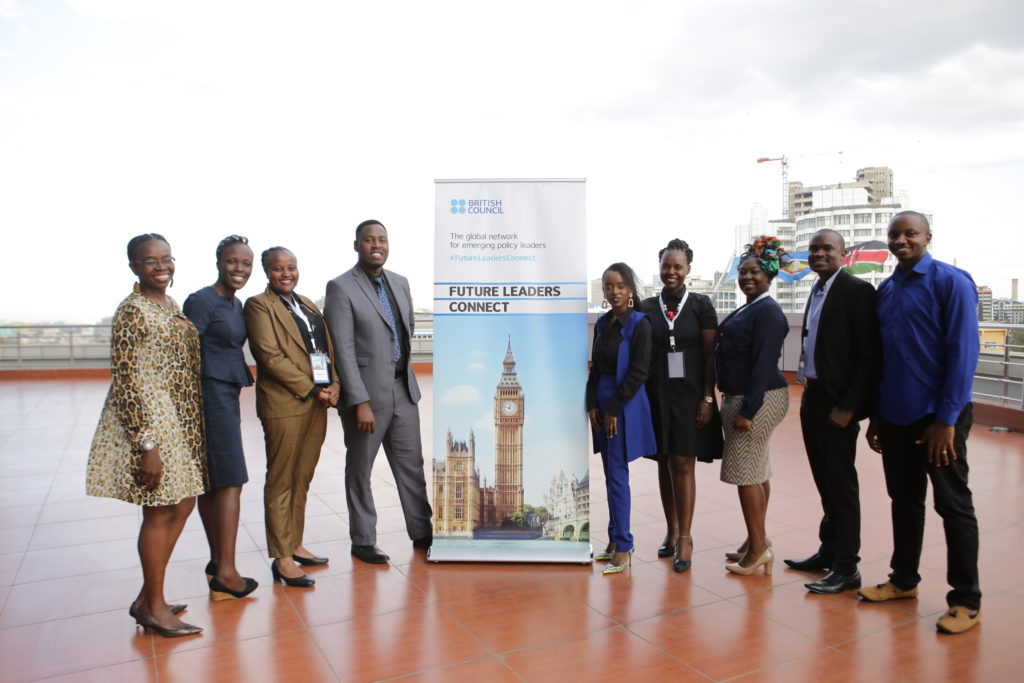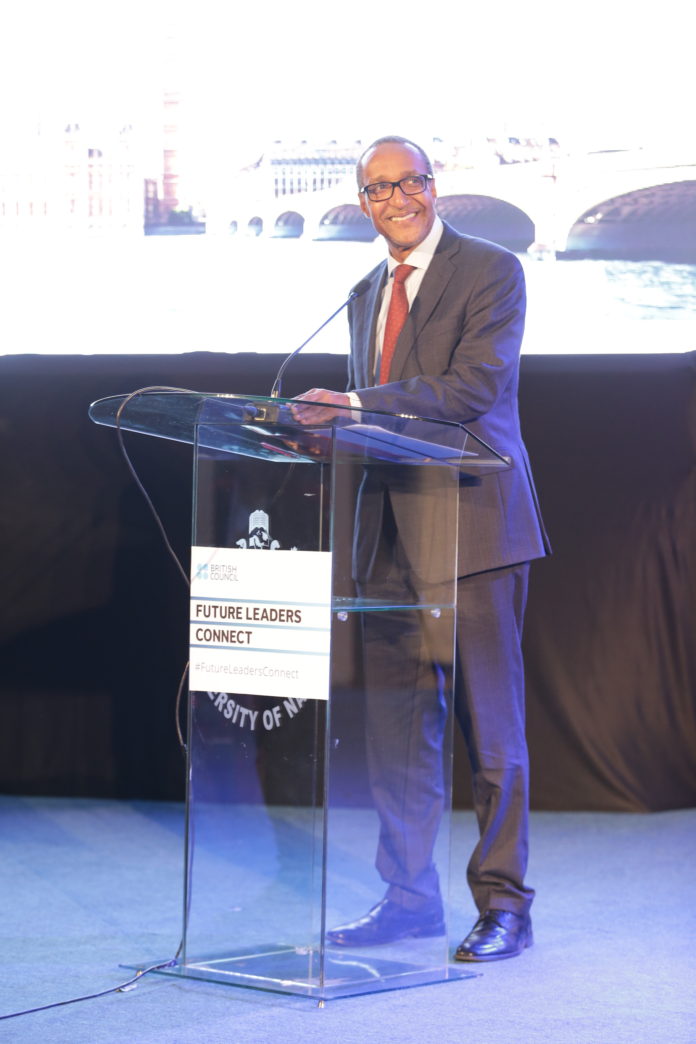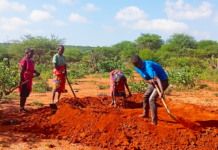By Clifford Akumu
They had only six minutes to pitch to a group of three judges and an expectant audience how their policy ideas could make the world a better place.
A group of eight finalists that had been selected out of 1300 applicants braced the podium; tensed, pouring their hearts out with well-articulated, practical and emotion-filled policy ideas.
They presented policy ideas on various topics including reproductive health, food security, community primary healthcare, sexual and gender-based violence, gender equality, reproductive health, campaign financing, and energy. All tackling the country’s big four agenda and global sustainable development goals.
When he rose to speak, Irũngũ Houghton, Executive Director at Amnesty International and as one of the judges said the panel of judges had received what he termed as “Global policy ideas that are relevant, clear and provided a sense of thought leadership”.
He went ahead to read the names of four young Kenyans selected to be part of the British Council’s Future Leaders Connect program a global leadership network for emerging policy leaders.
The winners Sharon Adhiambo (mitigating adolescent pregnancy), Alphaxrd Gitau (food security), Phyllis Muthoni (community primary healthcare) and Nafula Wafula (sexual and gender-based violence), said Irũngũ. Other judges were Christian Matherson-shadow cabinet officer in the United Kingdom and Nerima Wako-active Kenyan political analyst and Executive Director Siasa Place.

Nafula Wafula, passionate about women and girls used the opportunity to advocate against school-related sexual and gender-based violence. While Gitau, a masters in research and public policy student at the University of Nairobi and a farmer, gave a riveting action plan on achieving food security by supporting farmers through farmer groups.
A bubbly Sharon Adhiambo used her pitch to advocate the need to mitigate adolescent pregnancy while Phyllis Muthoni-Laikipia North sub-county medical officer of health squarely tackled community primary healthcare at its best.
The four will now travel to the UK in October to undergo advanced leadership training at the Møller Institute, University of Cambridge. They will meet with British MPs at the Houses of Parliament and other international leaders to discuss their policy ideas.
The quartet will further form the fifty winners, selected from more than 15,000 applications around the world, to be part of the prestigious program that aims to develop the next generation of globally connected leaders who will create positive change through effective policymaking.
Sir Ciarán Devane, Chief Executive of the British Council, said an international outlook is vital in cultivating future leaders able to understand and overcome the challenges today’s world present.
“Future Leaders Connect supports the next generation of leaders to develop policy skills and build international contacts that will enable them to create positive change across the world. I look forward to welcoming Kenya’s winners to London in October,” said Devane.
Principal Secretary Ministry of Foreign Affairs and International Trade, Amb. Kamau Macharia explaining his humble background and the role it played in two most important global policies, the Sustainable Development Goals and Agenda 2030 noted the upsurge in leadership among young people in the country.
“We are excited to see young Kenyans doing great things or getting ready for leadership positions. Please rise to the occasion and be the change you want to be,” said Kamau narrating how he used to take care of pigs in Limuru-Kenya as a kid.
Kamau added there is need to improve young voices in policy-making “The better the policy, the better the connection between the idea and actions to effect the change you want to see in the world” he said
In 2017 and 2018, young applicants globally chose access to education as their most important policy area. Other top issues highlighted were sustainability, climate change and the environment, and youth opportunities.
And previous participants are making a great impact by mentoring young people in schools and supporting them to prepare for the challenges of life after education, added Devane.
Take, for example, Tim Kipchumba’s mentorthon program. He explains that the knowledge and networking gained has given him a great push to some ideas of working and supporting young people.
“The program has added more impetus and clarity at mentorthon-which is part of my work where we mentor young people,” said Kipchumba, a member of the pioneer group of 2017 Future Leaders Connect program
The program is a long-term network of emerging policy leaders made up of exceptional individuals aged 18-35 from around the world. Members of the network are given the opportunity to develop their policy-making expertise, make valuable connections and gain the skills to have a real impact.
About twelve countries are participating in this year’s program including Canada, Egypt, India, Indonesia, Kenya, Mexico, Morocco, Nigeria, Pakistan, Poland, Tunisia, USA, plus the four nations of the UK-England, Wales, Scotland and Northern Ireland.














